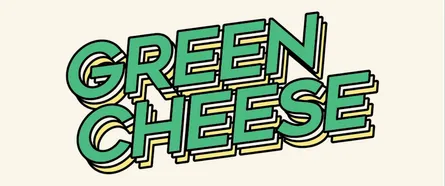
New Productivity Strategy
- Eric Kraus
- personal
- Oct 31, 2017
Introduction
I recently took a new role with my company. It wasn’t a difficult transition.
I have similar responsibilities, just different clients that I’ll be working with. It was a change I wasn’t planning for. Hoever, I am genuinely someone that values obsesses (at times) with growth, so how can you learn if you aren’t exposed to new things.
With the transition came with a number of other organizational changes as well. Comes with the territory.
With everyone around me also changing roles, it was chaos.
I quickly discovered, the way I had worked in the past, wasn’t working as well with my new teams.
The Set Up
Over the last six months, there have been consistent weeks where I averaged 100+ emails per day. I know many of us complain about email… but if you really break this down over a 10hr work day, that’s 1-2 emails per minute!
These emails were not the typical “cc: FYI” or “corporate newsletter”. These emails were important, related to my responsibilities, and almost all of them required my response .
Here’s the compounding problem: most of the emails required 5-15 min of research / effort to respond. Which, in reality, for me meant more like 10-20 min.
It has quickly become the impossible to keep up.
This Too Shall Pass
Thinking the problem was temporary, related to the transition, I took on a “just work a little harder for awhile” mentality - which I have come to realize in my career, is almost always a mistake.
I got up or started work earlier, worked more evenings (sometimes late nights), and I gave up plenty of weekends to catch up.
“Worst of all: I was working harder than ever, and it wasn’t making a difference.”
I soon realized the problem wasn’t temporary, and this extra effort was no longer sustainable - but NOW, I couldn’t undo my “extra work” and take a step backwards in output?!
I was also becoming more and more cynical and complaining all the time to friends and colleagues. Worst of all: I was working harder than ever, and it wasn’t making a difference.
Focus
I was refreshing my “digital reading library” the other day and came across James Clear’s blog .
I’ll admit, I was rather disappointed in myself that I knew nothing about James’ work. I quickly devoured a Sunday evening reading his top articles and found particular value in his writings on Focus .
People think focus means saying yes to the thing you’ve got to focus on. But that’s not what it means at all. It means saying no to the hundred other good ideas that there are. You have to pick carefully. I’m actually as proud of the things we haven’t done as the things I have done. Innovation is saying no to 1,000 things.
One of the posts on focus led me to a story about Warren Buffett and his pilot.
Avoid At All Costs
Warren Buffett once asked his personal pilot to participate in a 3 step goal setting exercise.
- Buffett started by asking the pilot to write down his top 25 goals .
The pilot took some time and wrote them down.
- Buffett then asked the pilot to review the list and circle his top 5 goals .
The pilot took some time, struggled a bit, but eventually decided on his 5 most important goals. The pilot now had two lists:
- 5 items circled as top goals
- 20 items remaining were secondary goals
- Buffett then asked the pilot what was learned from the exercise .
The pilot responded with something like: everything is important, but some things are more important than others .
To which Buffett reportedly replied, “No. You’ve got it wrong, Steve. Everything you didn’t circle just became your ‘avoid at all cost list’ . No matter what, these things get no attention from you until you’ve succeeded with your top 5.”
Focus is not about choosing what you work on, but committing to what you will ignore.
My Ah-Ha Moment
Remember the focus quote from Steve Jobs above?
That has been one of my favorite quotes for years. Except, I realize I’ve never put it to practice.
Like the pilot, I had it all wrong. I think many people share a similar mentality, that “everything on my task list is important and just a few things are more important than others” . This is wrong.
Focus is about developing committing to a “never do” list.
New Strategy
It was easy to realize my new-role productivity problem was my own allowance: responding to multiple emails at the same time, the majority that should be on that “never do” list.
I’m kicking this week off with a new task management strategy. It seems rather obvious in hindsight, but the commitment here is the important part.
Here is the framework:
- My 50+ item task list will get prioritized with today’s: “must do” top 5
- Those 5 items are my “only do” list (for the moment)
- New emails fall on the “never do” list, so I won’t check email until my “must do” items are done
- After those first ones done, I’ll check email again for anything critical, triage and re-prioritize the task list
- Take a break
- Repeat
I’m hopeful this is going to help my email problem and boost my work output significantly.


